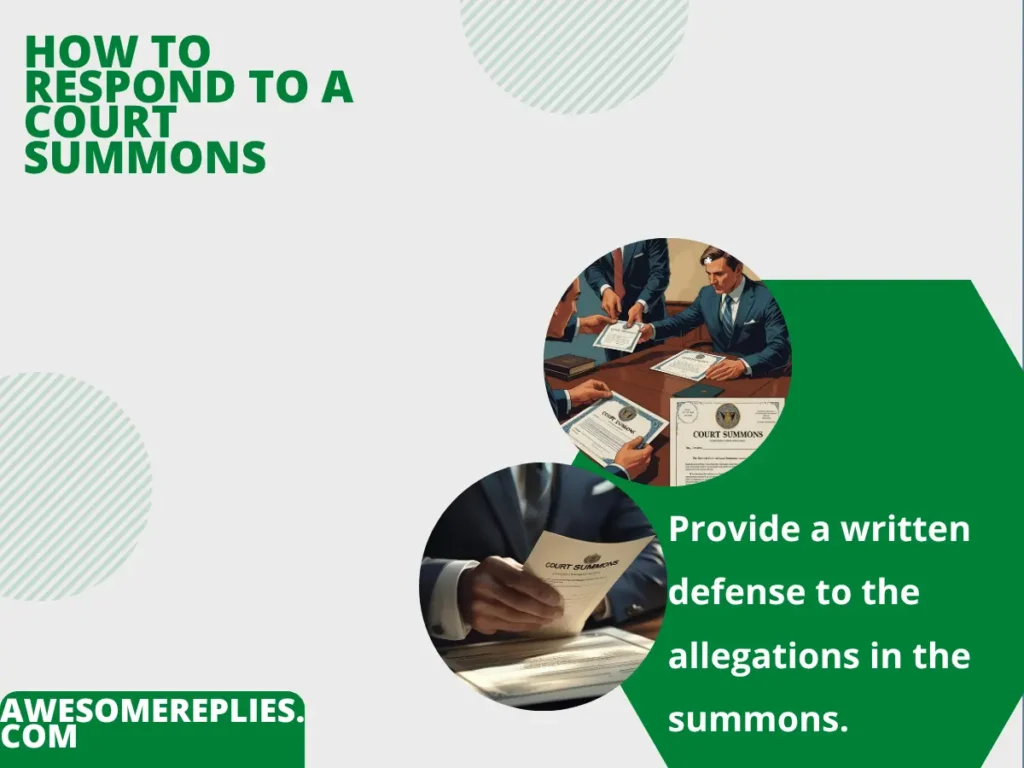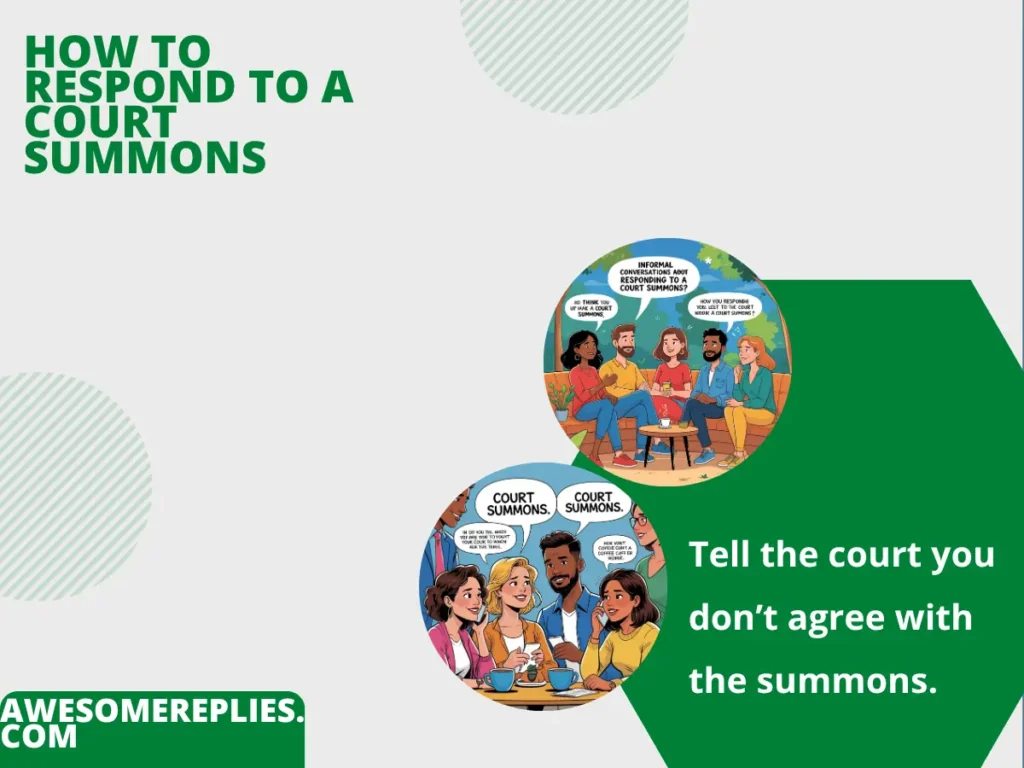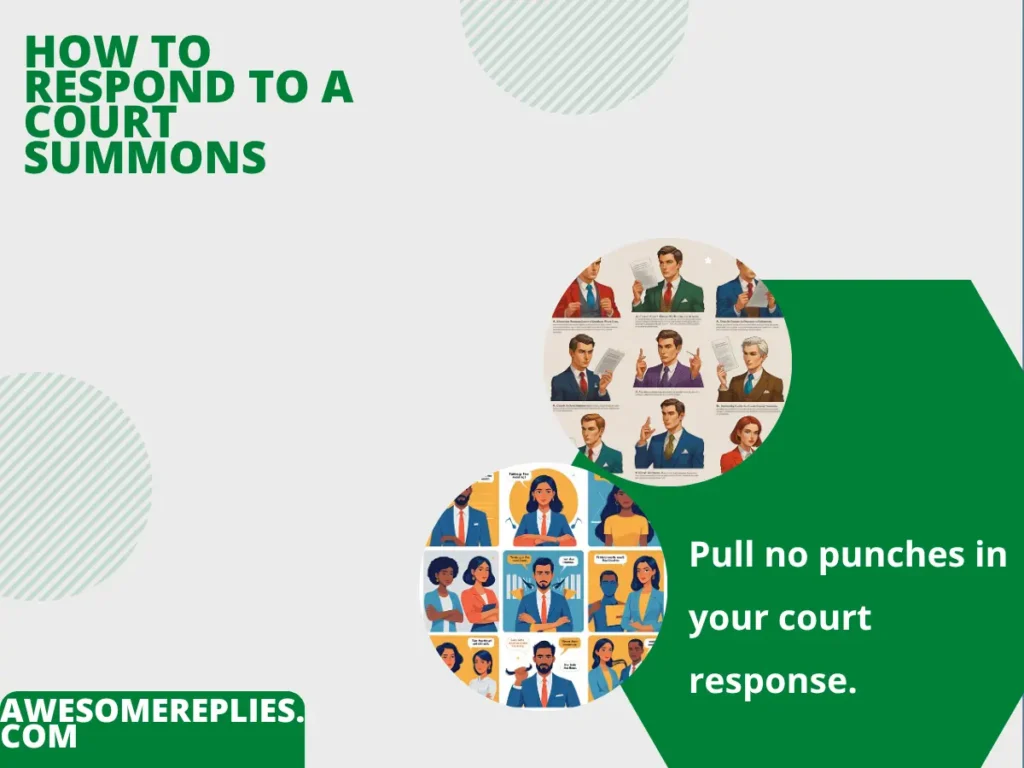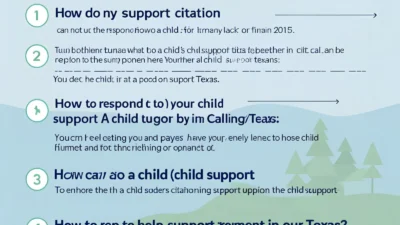You’ve been searching for the best way to handle a court summons, feeling unsure about what steps to take.
As soon as you read this article, your confusion will vanish. We’ll guide you through clear, practical steps to respond confidently.
Different situations, like civil lawsuits, criminal cases, or small claims, call for tailored approaches to address a court summons effectively.
This guide offers formal, informal, idiomatic, and professional ways to express your response, ensuring you’re prepared for any scenario.
Formal Ways to Address a Court Summons

When responding to a court summons, formal language shows respect for the legal process. Here are clear, professional ways to articulate your response:
- Acknowledge receipt of the summons in writing to the court clerk.
- Submit a written answer to the court within the specified deadline.
- File a formal response with the court, addressing all claims.
- Request a continuance if more time is needed to prepare.
- Seek legal counsel to draft your response accurately.
- Confirm your appearance in court on the specified date.
- Provide a written defense to the allegations in the summons.
- Request clarification of the charges from the court.
- Submit a motion to dismiss if the summons is invalid.
- File a counterclaim if you have a legal basis.
- Notify the court of your intent to represent yourself.
- Request a hearing to contest the summons.
- Submit evidence supporting your defense to the court.
- Engage an attorney to file your response professionally.
- Request a settlement discussion with the opposing party.
- File a motion for summary judgment if applicable.
- Respond to all allegations in the summons individually.
- Request mediation to resolve the dispute early.
- Confirm your compliance with court filing deadlines.
- Submit a formal objection to improper service of the summons.
- Request a court-appointed attorney if eligible.
- File a written denial of the claims against you.
- Provide a detailed explanation of your defense in writing.
- Request discovery to obtain evidence from the other party.
- File a motion to quash the summons if legally flawed.
- Submit a formal plea in response to criminal charges.
- Request a postponement for valid reasons, like scheduling conflicts.
- File a response affirming your intent to contest the case.
- Notify the court of any procedural errors in the summons.
- Request a translator if language barriers exist.
- Submit a written statement of your financial status if relevant.
- File a motion to transfer the case to another court.
- Respond with a formal admission of undisputed facts.
Informal Ways to Talk About Responding to a Court Summons

In casual conversations, you might discuss a court summons with friends or family. Here are everyday ways to express handling it:
- Get back to the court with your side of the story.
- Send a letter saying you’ll show up in court.
- Talk to a lawyer about what to do next.
- Write down why you think the case is wrong.
- Ask the court for more time to get ready.
- Tell the court you’re fighting the claims.
- Let the court know you’ll be there on the date.
- Ask a lawyer to help you write your answer.
- Tell the court you don’t agree with the summons.
- Ask for a meeting to sort things out.
- Send a note saying you’re handling it yourself.
- Tell the court you need a different hearing date.
- Share your side in a letter to the judge.
- Ask for proof from the person suing you.
- Tell the court the summons wasn’t delivered right.
- Ask for help from a lawyer the court picks.
- Write that you don’t owe what they claim.
- Tell the court you’re ready to defend yourself.
- Ask to talk it out instead of going to trial.
- Send a quick note saying you got the summons.
- Tell the court you’re not guilty of the charges.
- Ask for a delay because you’re not ready.
- Let the court know you’re dealing with it.
- Write that the case doesn’t belong in that court.
- Ask for someone to translate court papers.
- Tell the court you can’t pay what they claim.
- Send a note saying you’ll fight the case.
- Ask the court to throw out the summons.
- Tell a friend you’re working on your court response.
- Say you’re getting advice before answering the court.
- Mention you’re writing a defense for the judge.
- Tell someone you’re asking for a fair hearing.
Idiomatic Ways to Express Responding to a Court Summons

Idiomatic phrases add color to how you describe handling a court summons. These expressions capture the action vividly:
- Face the music and answer the court’s call.
- Step up to the plate with your defense.
- Put your cards on the table in court.
- Take the bull by the horns and respond.
- Get your ducks in a row for court.
- Lay it all out in your written answer.
- Stand your ground against the summons.
- Throw your hat in the ring for trial.
- Cover your bases with a legal response.
- Hit the ground running with your defense.
- Play your hand carefully in court.
- Get the ball rolling with your answer.
- Keep your eye on the ball in court.
- Go to bat for yourself in the case.
- Pull no punches in your court response.
- Put your best foot forward in court.
- Take the high road with a formal answer.
- Clear the air with your defense.
- Get down to brass tacks with the judge.
- Hold your own in the legal fight.
- Lay down the law in your response.
- Come out swinging with your defense.
- Keep your powder dry until court.
- Stand tall against the summons claims.
- Get your house in order for trial.
- Take it on the chin and respond.
- Put up a fight in the courtroom.
- Roll up your sleeves for the case.
- Call the shots with your defense.
- Stay in the game with your answer.
- Shoot straight with the court’s questions.
- Dig in your heels and fight back.
- Answer the bell when summons arrives.
Professional Ways to Handle a Court Summons
In workplace or professional settings, like emails or meetings, precise language is key. Here are workplace-friendly ways to address a summons:
- Prepare and file a formal response to the court.
- Consult with legal counsel to draft your answer.
- Submit a timely written defense to the allegations.
- Request an extension if preparation time is needed.
- Confirm your court appearance in writing.
- Engage an attorney to represent your interests.
- File a motion to dismiss invalid claims.
- Request mediation to resolve the dispute amicably.
- Submit a counterclaim if legally appropriate.
- Notify the court of self-representation intentions.
- Request a hearing to challenge the summons.
- Provide evidence to support your defense formally.
- Address all allegations in a detailed response.
- Request discovery to gather relevant evidence.
- File a motion to quash improper summons service.
- Submit a plea in response to criminal charges.
- Request a court-appointed attorney if eligible.
- File a written denial of the plaintiff’s claims.
- Request a settlement conference with the opposing party.
- Confirm compliance with all court deadlines.
- Submit a motion to transfer the case if needed.
- Request clarification of the summons details.
- Provide a financial statement if relevant to the case.
- Object formally to procedural errors in the summons.
- Request a translator for court proceedings if necessary.
- File a motion for summary judgment when applicable.
- Respond with a formal admission of undisputed facts.
- Notify the court of intent to contest the case.
- Request a postponement for scheduling conflicts.
- Submit a comprehensive defense to all claims.
- Engage in pre-trial discussions to resolve issues.
- Ensure all filings meet court procedural standards.
Conclusion
Responding to a court summons requires clarity and precision, whether you’re in a formal courtroom or casually discussing it.
Using the right approach for each situation builds confidence and ensures compliance.
Practice these phrases to navigate the process smoothly, whether addressing the court, seeking legal advice, or explaining your plan to others.
Stay calm, act promptly, and choose your words wisely to handle your summons effectively.




